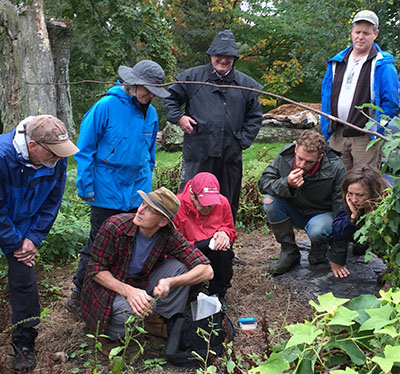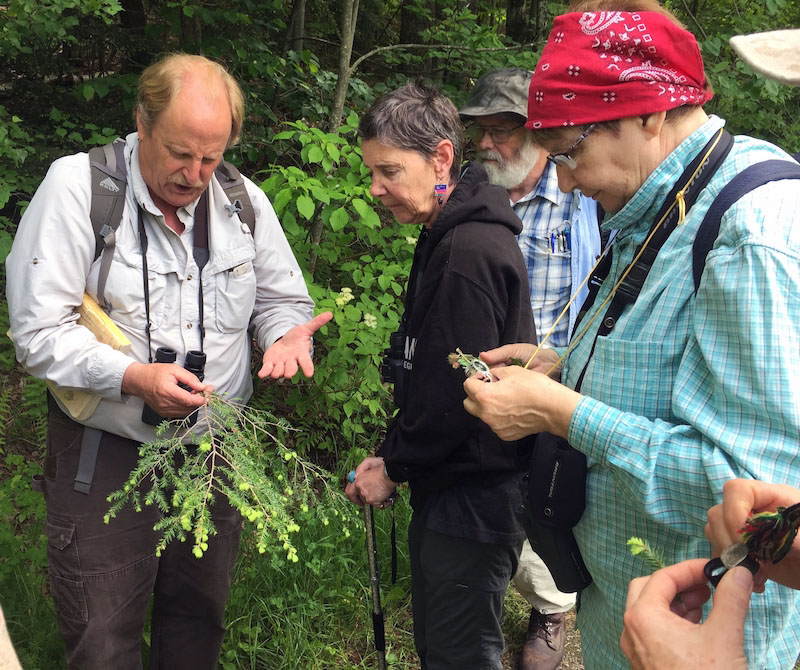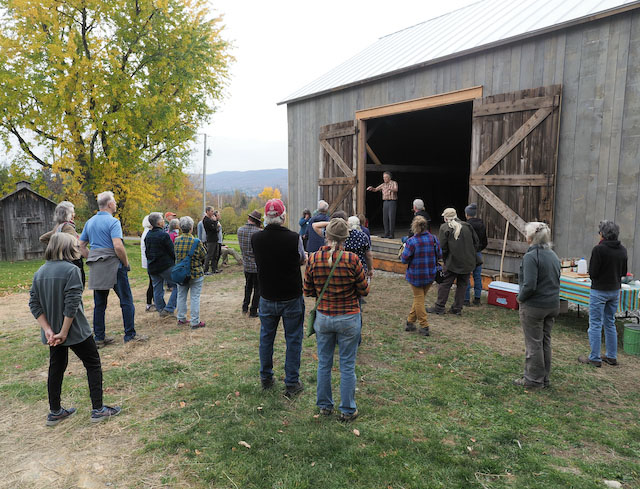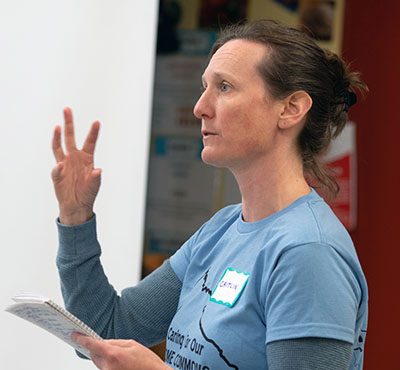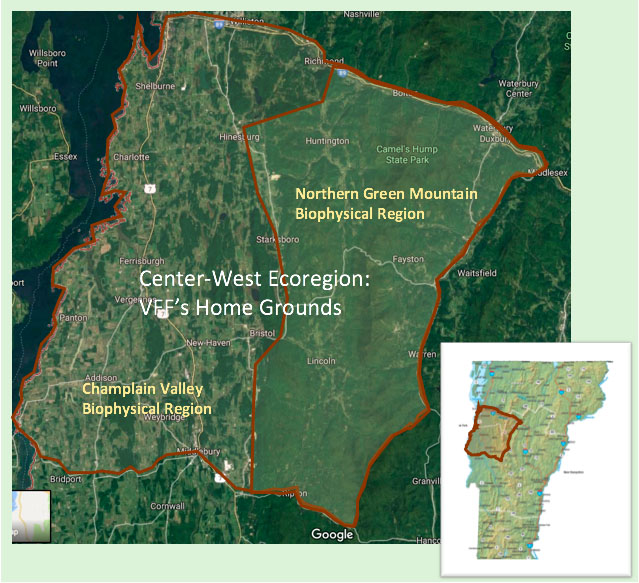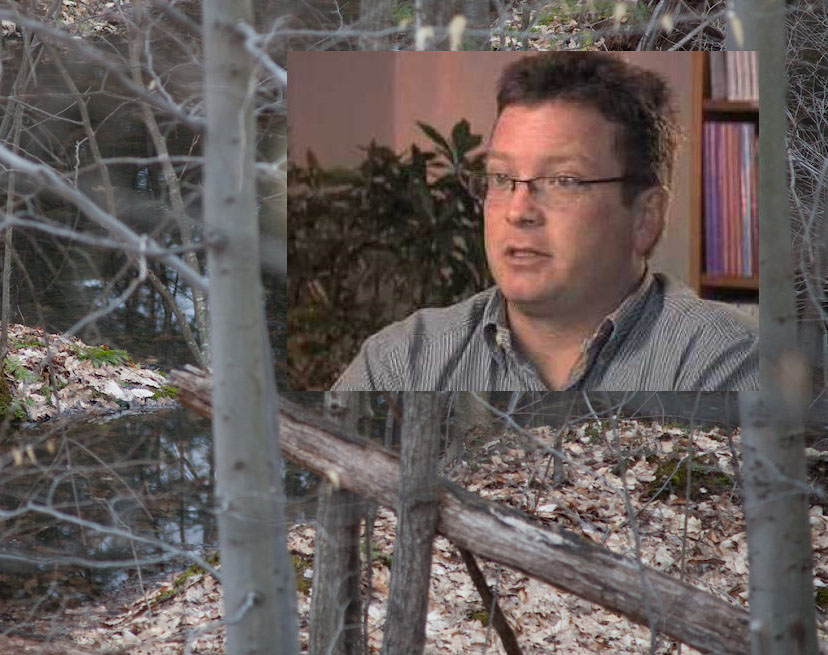
–guest blog by Jim Andrews, herpetologist and coordinator of the Vermont Reptile and Amphibian Atlas
I am a conservation herpetologist that has been working in Vermont for over 40 years and doing research and teaching part-time at a variety of institutions including the University of Vermont and Middlebury College. I am also a member of the Salisbury Conservation Commission. We recently sponsored a talk, “Infinite Economic Growth and other Fairytales that Destroy Ecologies and Communities,” by ecological economist Dr. Jon Erickson of the Gund Institute at the University of Vermont. It was an excellent presentation, well attended, and some of our local public servants were there (Chris Bray, Amy Sheldon, and Ruth Hardy). We made a video of the presentation. If it turns out reasonably well, it will be available on Middlebury Community Television.

Jon’s central message was that we are trusting a long-outdated economic system that does not reflect ecological realities and is destroying our ecosystems here in Vermont and around the world.
Our ecosystems in Vermont are suffering badly. Because our population is relatively small compared to many other states, some assume that we have much more of our resource capital to spend without damage. This is not the case. We have the opportunity to address that damage now or continue to wait until it is irreversible.
Here are some background data:
- The biggest threats to all wildlife and fully functioning ecosystems are habitat loss, fragmentation, and degradation.
- Between 1997 and 2007, 75 square miles of land were developed in Vermont.
- Between 2007 and 2013, 75,000 acres of forest land were lost.
- Since European settlement 35% of our wetlands in Vermont have been lost.
- We continue to lose 200-400 acres per year of wetlands.
- Twenty percent of our reptiles and amphibians are listed as threatened or endangered and one has likely been extirpated.
- Although we have had some wonderful successes recovering a few bird species that had suffered from the use of pesticides that have since been discontinued, many birds, insects, and plants continue to decline and will need to be listed in the future.
- Despite valiant efforts on the part of many state employees, Vermont’s Agency of Natural Resources does not have the required funding or personnel to survey, monitor, and conserve our ecosystems when faced with the continual loss, fragmentation, and loss of habitat brought about by a perpetual growth economic system. The best they can do, is minimize the damage.
A biologist colleague of mine working for the state of Rhode Island once told me that his state was twenty years to build-out. I asked him what that meant. He replied, at the rate Rhode Island is growing, we will have developed all non-conserved land within twenty years. He went on to say, “I hope Vermont learns from our mistakes”.
Our current economic model is not sustainable. If we wish to maintain our wildlife, forests, agricultural lands, and fully functioning ecosystems (our life support system), these losses cannot continue and the forces behind the losses must be stabilized. They are a growing global human population and growing resource use per person.
An economic model that depends on perpetual growth in those areas, is not sustainable. We can either deal with it now or continue to watch our ecosystems decline.
Recent declines in our birth rate have once again highlighted our mistaken belief that more people using more resources will fix the problem. It will not. It is the problem. Don’t misunderstand me, ethically we will have to allow emigration and migration of people as they move from state to state and country to country. Also we don’t have to tell people how many children they can have. Most developed countries are already seeing declines in birth rates as a result of the education of women and availability of family planning resources. The decline in birth rates that we are currently seeing is a wonderful and necessary result that we should be embracing. It will clearly bring about challenges (schools, Social Security funding). But we cannot rely on the perpetual growth model to deal with it. It will only make things worse in the long run.
As most Vermonters are well aware, we have to deal with global climate change as aggressively as we can to head off global disaster. But even here, we cannot expect to lower greenhouse gas emissions if we continue to have more people using more material and energy resources around the world.
If readers are not already familiar with ecological economics, steady state economies, and degrowth, I urge you to investigate these topics.
- Ecological economics is a field of academic research that incorporates both human economies and natural ecosystems.
- A steady state economy is an economy of stable or mildly fluctuating size.
- Degrowth, as its name implies, refers to downsizing the economy. And by many ecological economists it is considered an essential economic strategy in responding to the limits-to-growth dilemma.
What I see every year are Vermont’s reptiles and amphibians struggling to survive as our population grows and we consume and fragment more land, drive more cars, and emit more toxins. Others might see fewer and fewer places to hunt, fish, hike, snowmobile, generate pollinators, snowshoe, bird watch, raise food, or harvest renewable forest resources.
I think many Vermonters know deep down, that growth cannot continue forever without seriously degrading the planet for our children and grandchildren. Let’s inform ourselves now and start working toward an ecologically sustainable economic system. We can start by stopping this misinformed discussion of solving our problems by importing more people into Vermont. They will come, but it is not the answer to our problems.
Here are links to a couple recent articles and interviews. I have a much longer reading list for those who are interested.
Why a Wave of Economists are Championing Slow Economic Growth http://www.wbur.org/onpoint/2020/02/12/economists-slow-economic-growth (NPR)
Can we Have Prosperity Without Growth? https://www.newyorker.com/magazine/2020/02/10/can-we-have-prosperity-without-growth. (New Yorker)
And a book: The Myth of Progress, by Tom Wessels


